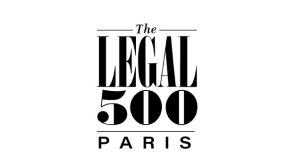Selective distribution: the Paris Court of Appeal does not consider the conditions of resale of sports shoes, covered by a selective distribution agreement, by a discount chain to be devaluing (Paris court of appeal, 19 October 2022).
On 19 October 2022, the Paris Court of Appeal ruled on a case concerning the conditions of resale of products covered by selective distribution in a discount retail chain. The head of a sports and leisure goods network accused the chain of having sold its products as part of a promotional operation during which it had committed acts of unfair competition, consisting in particular of marketing its products alongside products incompatible with its brand image and of having thereby damaged its reputation.
Firstly, the Paris Court of Appeal found that the network head failed to establish that the conditions of the sale of its branded products by a discount retailer on poor quality advertising media within the framework of a promotional wine sale, next to alcoholic products or low-end products, harmed its sports performance image and consequently its reputation in the eyes of consumers. In effect, the Court highlighted the fact that the sale of its brand products is commonly proposed in the advertising catalogs of other distributors with its products presented alongside mass-market goods and that the brand had itself already organized the promotion of its products in partnership with other brands, including alcoholic beverages or sodas with low nutritional value.
In addition, the head of the network reproached the discounter for having used paper displays of very inferior quality to those it regularly used for the presentation of its products. The Paris Court of Appeal considered that, although the network head was committed to phasing out promotional media such as, in particular, catalogs for the promotion of sports products, it remains that this mode of advertising is frequently used by advertisers to promote the sale of this category of products by large scale retailers. It concluded that the head of the network had failed to demonstrate how the marketing method used by the discount retailer would damage its reputation, in particular since its products were displayed next to products of a similar reputation.
Secondly, the appeal judges considered that the display of branded sports shoes on racks or on the floor, or in their boxes in the central aisle of a supermarket on the occasion of an isolated promotional operation, was not detrimental insofar as the head of the network authorized its authorized dealers to use this type of display during sales periods. Nor was the display of branded sports shoes in close proximity to low-priced flat pumps and ankle boots, since these were not necessarily low-priced products and as branded products of equivalent status to those of the supplier, albeit of a different nature, were also for sale alongside them.
Defeated on the grounds of unfair competition, the appellant was more successful on the grounds of unfair commercial practices. Indeed, the Court found in its favor, considering that the fact that the discounter displayed – using the slogan “3, 2, 1 SPORTEZ!” beneath a running track with the generic term “basketball” – shoes of the brand intended for the practice of various sports according to variable degrees of intensity and thus having a certain technicality, constituted a misleading commercial practice. According to the Court of Appeal, the consumer could infer that the shoes were recommended for athletic sports when in fact they were merely leisure shoes. The distributor was also sanctioned for having failed to comply with the requirements of professional diligence by not sufficiently informing its customers that not all the proposed colors were available.
Joseph VOGEL Avocat à la Cour jvogel@vogel-vogel.com Vogel & Vogel, Paris

 MY ACCOUNT
MY ACCOUNT













